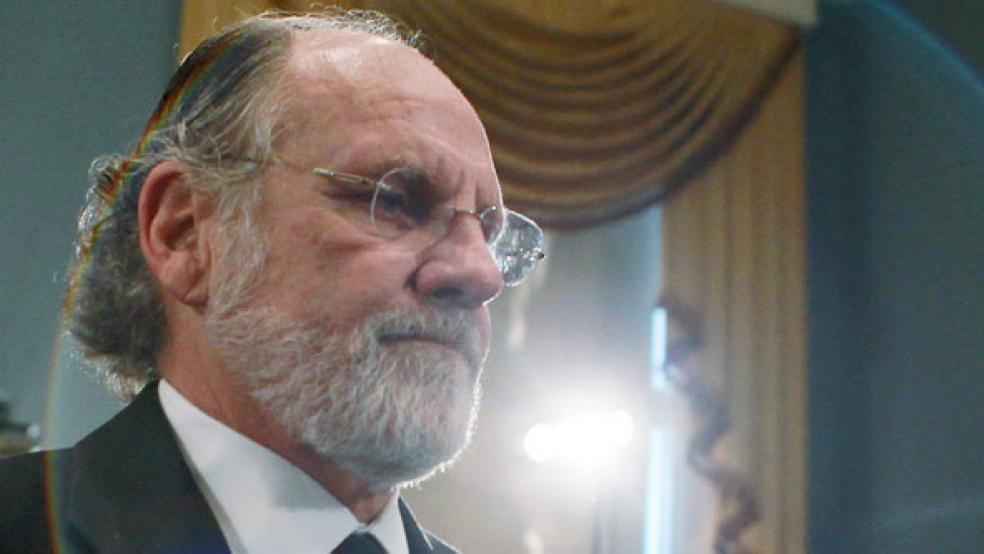When Jon Corzine arrived to head up the turnaround of MF Global, the idea was that he would take advantage of the upheaval in the financial world and position the company to become a next-generation, post-crisis Wall Street player, filling in some of the gaps in the landscape left by the collapse of Bear Stearns and Lehman Brothers. The ultimate goal, say people who chatted with Corzine a year or more ago, was for MF Global to evolve into a new breed of investment bank. And to some extent, Corzine succeeded: He convinced the New York Fed to name the firm a primary dealer, one of a handful of firms with a mandate to purchase government bonds directly from the Treasury.
By the time Corzine arrived on Capitol Hill yesterday to testify to a congressional committee about the chain of events that led to the collapse of MF Global – and the disappearance of some $1.2 billion of client funds – it was clear that the Goldman Sachs alum’s new venture had become nothing more than a new version of the now-familiar Wall Street way of doing business, complete with reckless risk-taking, disregard for risk managers who warned about looming problems, and a wholehearted embrace of proprietary trading rather than the more traditional investment banking model. In the volatile, even febrile, environment of post-crisis Wall Street, that combination very rapidly proved toxic; within 19 months of Corzine’s arrival, collateral calls pushed the firm into bankruptcy.
In his appearance before a House panel, Corzine, a former senator and New Jersey governor, did get a much easier ride that some of his erstwhile colleagues at Goldman Sachs who ran the gauntlet of congressional interrogators last year. Goldman CEO Lloyd Blankfein shrugged off any suggestion that he was in any way responsible for transactions like the infamous Abacus deal, in which the investment bank failed to disclose what regulators later argued were vital details of structured products – caveat emptor; it was up to clients to protect themselves. In contrast, Corzine appeared reflective and almost chastened by recent events during his testimony. He “never intended to break any rules,” he told members of the House Agriculture Committee, who in turn congratulated him for not using the Fifth Amendment to shield himself from answering their questions.
But being sorry and admitting that the buck stopped with him simply isn’t enough. Over and over again, Corzine said he couldn’t elaborate or explain exactly what happened, especially with respect to the missing $1.2 billion. He said he was left in “stunned disbelief” when he found out about the funds that had vanished. “I had no intention to authorize the transfer of segregated monies,” he told one congressional questioner. “Every intent of my actions was to do the right thing.” But Corzine’s explanation for MF Global’s disastrous investments in debt issued by the European Union’s most financially troubled countries was an eerily familiar one: “We did those things that we thought were in the best interests of shareholders, given inability of old business plans to generate the kinds of revenue” that would keep shareholders happy, and that would therefore ensure the firm would be able to continue working with customers. In other words, Corzine courted disaster: The quest for ever-higher returns, a hallmark of the period leading up to the 2008 financial crisis, continued to dominate his thinking.
Corzine may truly not have a clue as to how $1.2 billion of supposedly sacrosanct client funds made their way out of segregated MF Global accounts only to vanish. There’s no reason to suppose that after all his decades on Wall Street, such a savvy individual would deliberately violate one of its primary rules, knowing, as he must have, how rapidly this would have been uncovered. Still, a CEO has to take responsibility for what his employees do in the culture that he has created and in which they work every day. While Corzine repeatedly declined to speculate on what had happened to the money, he couldn’t rule out the possibility that someone misinterpreted his comment that “we’ve got to fix this” as a coded instruction to loot those client accounts in order to bolster the firm’s finances.
Only a detailed forensic analysis of MF Global’s books will stand a chance of telling us what happened to the money. As for what happened to MF Global, well, it’s a stark reminder that Dodd-Frank and all the other actual or proposed reforms to the financial system can’t fix what’s wrong on Wall Street as long as the people who run the firms themselves don’t change their assumptions and their approach to the business. Wall Street is dead; long live Wall Street.





